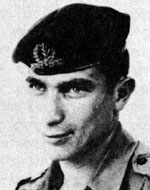Man and Leah. Born on March 12, 1948 in Torino, Italy, his parents, Holocaust survivors, came to Italy on a journey to Eretz Israel, but for reasons that were not dependent on them, they could not fulfill their wishes and emigrated to Argentina. Arrived with his parents to Argentina when he was only six weeks old, and his parents, who were national Jews, cared for Moshe’s education in the spirit of Judaism and nationalism in the Hashomer Hatzair movement to which he belonged. , Convinced the parents, who had reached a satisfactory economic situation, to leave Argentina, and in 1959 the family and their children immigrated to Israel, and Moshe was then 11 years old. For the first time, the parents came to Kibbutz Ginosar but did not adjust to the life of the kibbutz and then moved to Ramle. The head of the family aspired to be independent all his life, and when the proposal to move to the moshav was accepted he accepted it willingly and the family settled in Moshav Beit Elazari near Rehovot. In the moshav Moshe became one of the children’s company. He attended elementary school there, completed his studies there, and continued to study at the agricultural school in son of Shemen. He excelled at working in his parents’ farm. He was active in the local branch of the Bnei-moshavim Brigade and was known among the sports enthusiasts as an excellent athlete like a soccer player. When he reached 11th grade in son of Shemen, he left school to study at the Amal vocational school in Rehovot, where he completed his studies there and worked to help his parents, who were in poor financial condition. The family moved to Lod in November 1965 and was drafted into the IDF before the age of 18. His approval was unlimited when he received a positive response to his request to be accepted into the ranks of the IDF. At a recruiting party among his friends, he said: “When I received the draft, I felt like I was kissing the whole world.” At the same time, Moshe promised to volunteer for the paratroopers, and for him it was obvious. After completing basic training, and completing his officers’ training course, the Six Day War broke out, and the cadet was among the forces that conquered the positions of Rafiah and Khan Yunis, and the armored forces that conquered Chen Yunis replaced a company of a house The officers were told to remove the last resistance poles in the town, but the silence was suddenly broken and hand grenades were thrown from an unknown direction to the company’s soldiers, and the company commander decided to send three volunteers to locate the house from which the grenades were thrown. The hiding place, occupied the house, but in the same battle he was badly wounded, recovering from his wound and despite the doctors’ instructions He returned to the officers’ school, completed the course, and at the end received the rank of lieutenant-colonel, and returned to the Paratroopers Battalion as an officer. Once, on a routine patrol near Damiya Bridge, he encountered a terrorist squad with his men. A fierce battle ensued and Moshe was wounded again and brought to the hospital. When he recovered, the doctors ruled that he had to give up combat duty. But, as usual, Moshe did not surrender. He moved from one medical committee to another until he managed to cancel the doctors’ decree. Two weeks before his death he was promoted to lieutenant and then decided to remain in the permanent army. Moshe knew that a rigid and tough commander would never form a good platoon, but sometimes he would have a hard hand because he knew that all his demands and demands were necessary to defeat a soldier. On the other hand, each of his subordinates knew that if he had difficulties and problems, he would always find a sympathetic ear in Moshe and would be able to approach him at any time. Once when one of the soldiers had to go home to donate blood to his sick mother, Moshe called to him and said: “Know that if additional doses are neededOf blood do not be shy to ask. And the department was given to you. “This case tells us who this man was – and many of the cases were like him, and his last vacation (and shortening) was at home and the next day he had to return to his unit. This was on the 20th of Tishrei 5729 (October 12, 1968). He was laid to rest in the military cemetery in Kiryat Shaul. After they fell, a booklet appeared in memory of Moshe Kiefer.
